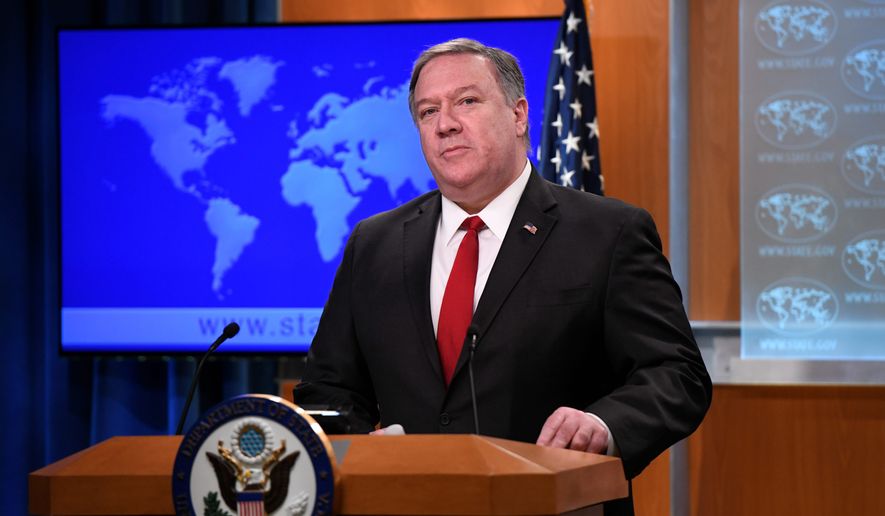Secretary of State Mike Pompeo had a long day on Capitol Hill, defending his department’s reduced budget request before two Hill panels and clashing repeatedly with both Democrats and Republicans over President Trump’s recommended 23 percent cut in diplomatic and foreign aid programs.
Mr. Pompeo also was pressed on a number of hot-button foreign policy issues, defending the administration’s handling of relations with Saudi Arabia in the wake of the murder of journalist Jamal Khashoggi and the hard line President Trump has taken against the socialist regime in Venezuela.
House Foreign Affairs Committee Chairman Eliot Engel called the president’s FY2020 foreign affairs budget request “dead the moment it arrived on Capitol Hill,” during a committee hearing with Mr. Pompeo.
“I don’t know whether the administration really believes we can mount an effective foreign policy … on a shoestring budget or if the people calling the shots just don’t care,” the New York Democrat added. “This budget, in my opinion, signals to the world that the Trump foreign policy is one of disengagement.”
The top Republican on the House Foreign Affairs Committee also voiced concern with the proposed cuts to the department. Rep. Michael McCaul said he believes “that certain cuts can have unintended consequences that cost us more in the long term.”
Mr. Pompeo repeatedly defended the cuts, saying the administration had to be “mindful of the burden on American taxpayers.”
The $40 billion proposed budget for the State Department and USAID supports the national security strategy, the secretary said, and “will fully fund State and USAID’s current workforce levels, enabling us to take on emerging policy challenges.”
Mr. Trump’s budget for diplomatic and aid programs would represent a 23 percent funding cut, including sharp reductions for U.N. programs and humanitarian assistance. Congress is widely expected to restore many of the proposed cuts.
Despite the cuts, the budget awards $3.3 billion to Israel for foreign aid. The Trump administration has expressed renewed support for the country, in moving the U.S. embassy to Jerusalem and officially recognizing the Golan Heights as part of Israel.
Mr. Pompeo was hesitant to release specific details about the highly-anticipated Middle East peace plan led by presidential son-in-law and senior White House adviser Jared Kushner, despite new Israeli-Palestinian violence and a breakdown in U.S. communications with the Palestinians.
“I’m optimistic that what we’re doing will give us a better likelihood that we’ll achieve the outcomes that will be better for both the Israelis and the Palestinians as well,” Mr. Pompeo said.
Asked when the peace plan would finally be released publicly, Mr. Pompeo said only, “in less than 20 years.”
On Venezuela, he dismissed the prospect of a diplomatic end to the confrontation, saying, “There is no evidence that there is any value in speaking with [Venezuelan President Nicolas] Maduro at this time.”
Even as he was testifying, President Trump was meeting at the White House with the wife of Venezuelan opposition leader Juan Guaido, whom the U.S. and a number of countries in the region insist is the real legitimate leader of the country.
Mr. Pompeo is credited with restoring some clout to Foggy Bottom after the brief, disastrous tenure of former Secretary of State Rex Tillerson, forging a much closer bond to the president.
At the House Appropriations hearing, Mr. Pompeo was asked if he had fulfilled his promise to restore the “swagger” to the State Department.
“I hope so,” Mr. Pompeo responded, “but I’ll leave that to others to judge.”
• Lauren Toms can be reached at lmeier@washingtontimes.com.




Please read our comment policy before commenting.